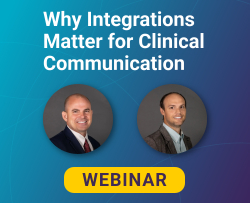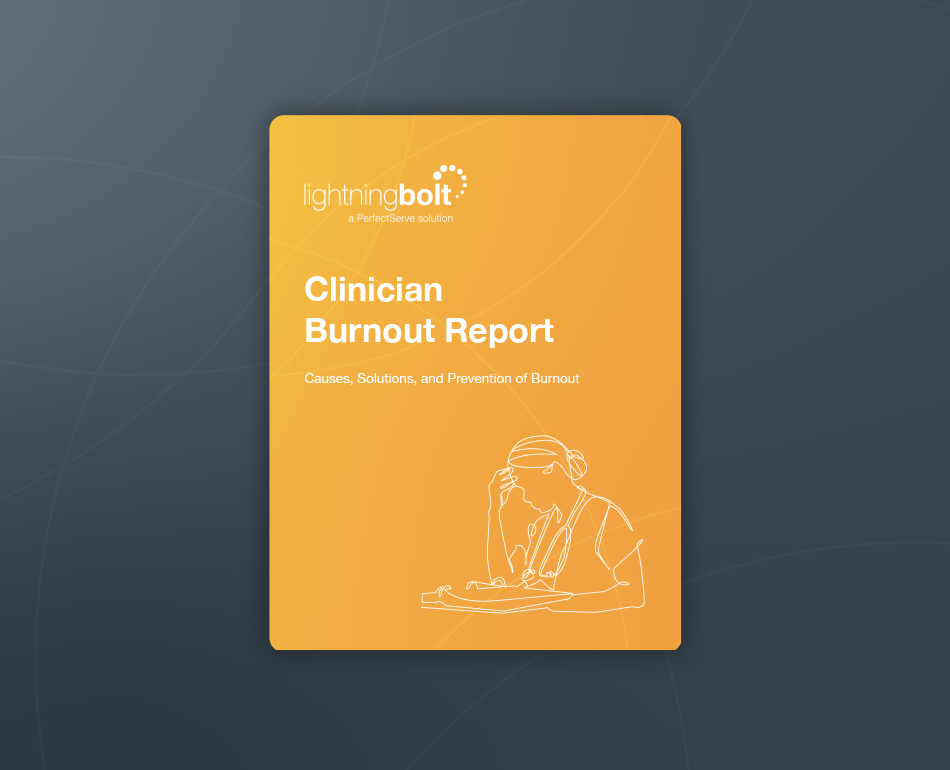Mindful MD: A Day for Physician Wellness & Advocacy
TABLE OF CONTENTS


In the battle against physician burnout, there is power in coming together to heal. On Friday, June 28, 2019, Lightning Bolt Solutions hosted a group of over 20 influential physicians from across the Bay Area for the first-ever Mindful MD: A Physician Wellness and Influence Day. Started as a way to address the physician burnout epidemic through healing and human connection, our goal was for guests to leave feeling rejuvenated and ready to advocate for change.
Between powerful keynote sessions from Dr. Christina Mangurian, Dr. Carrie Charlton, and Dr. Steven Xenakis, guests enjoyed meditation, a yoga class led by Awakened Spirit Yoga’s Julia Forest, delicious meals, art therapy, massages, and acupuncture. With added time for conversation, the physicians in attendance were able to make meaningful connections, both with each other and their own purpose in medicine.
“The event was AMAZING. You and the team did such an incredible job. The speakers were awesome and weaving the activities and self-care into the day made the whole day magical. Thanks for including me!” — Ann Garnier, Lisa Health
Mindful MD: our connection to physician wellness
We kicked off Mindful MD with an introduction from our founder, Suvas Vajracharya, Ph.D. He shared Lightning Bolt Solution’s origin story, and why we’re so invested in promoting physician wellness and preventing burnout.

Suvas described how Lightning Bolt Solutions was born from a simple ask—a physician was frustrated by the deceptively complex task of scheduling physicians in his group. He requested help from his friend and, 16 years later, that request has grown into a technology company dedicated to advancing physician scheduling. Even small asks and acts of advocacy from physicians can create massive change.
Along the way, Suvas worked with huge hospitals and health systems, including Sutter Health and the U.S. Department of Veterans Affairs, to optimize their physician scheduling. Learning about the physician burnout crisis from the front lines, he came to understand that it’s a systemic issue that will be solved only by systemic change, not by asking individual physicians to shoulder more burden. In addition to providing a software that helps doctors operate more efficiently, Lightning Bolt has since been dedicated to promoting physician wellness through events like Mindful MD, research, and more.
Using the arts to heal burnout

The AAMC has done research that shows how bringing the humanities and arts into medicine helps physicians form deeper connections with patients, maintain joy in medicine, and develop empathy and resiliency.
To capitalize on these findings, we invited physicians to participate in a Flow Arts workshop, where everyone created unique abstract art pieces using an easy acrylic paint technique, to promote healing and relaxation.
In addition, we hosted corporate improv trainer, Ayurvedic coach, author, and speaker Monica Bloom to lead us in some educational—and often hilarious—icebreakers and improv games. We learned important lessons we can take into our hospitals, health systems, or practices, to support one another and battle burnout. Here are three things we learned:
1. The power of saying yes
To keep an improv game or scene going, it’s important to “say yes” to your partner. You take what they contribute and build upon it, rather than shut it down.
2. How to actively listen
You can’t effectively participate in improv if you don’t pay attention to what’s going on. Active listening enhances your own understanding of a situation and improves your response and decision-making.
3. The importance of protecting your partner
Perhaps the most important lesson we learned in improv is this: it’s not about us. While our instinct in a vulnerable setting may be to protect ourselves first, we won’t get anywhere if we don’t protect our partners, be they colleagues or improv partners.
What ways can you bring these lessons and mindful practices into your own workplace—whether you’re a physician, an IT leader, or a healthcare VP?

Talking to administrators about physician burnout
Dr. Christina Mangurian, Professor of Clinical Psychiatry & Vice Chair for Diversity and Health Equity, UCSF, kicked off our keynote sessions by sharing her own experience with inadequate family leave policy. When her infant son required a three-month hospital stay, she was inspired to leverage the power of family for a better healthcare system.
Dr. Mangurian has worked tirelessly in support of policies that support physician caregivers, publishing a study on family leave in JAMA, and influencing administrators at UCSF to create a 12-week paid family leave policy that remains in place today. Additionally, she co-founded Time’s Up Healthcare, an initiative dedicated to fighting sexual assault, harassment, and inequality in the healthcare workplace.
Burning in to burnout: community and crisis in medicine

The 2017 Northern California wildfires were some of the deadliest to occur in the United States in the past century. In addition to 44 deaths and 192 hospitalizations, 90,000 people were forced to evacuate their homes. Our second keynote speaker, Dr. Carrie Charlton, and her family were among those evacuees—but unfortunately, they were never able to return home.
Yet just a few hours after her house burned down, Dr. Carrie Charlton joined five other emergency room physicians in showing up for her shift in the ER, treating survivors of the very same fire that had just seized her home. Close to 24 hours later, Dr. Charlton knew that she had given all she could in the face of her deep personal loss, and signed her patients over to other physicians.
In the wake of this very literal “burnout” experience, as she began to both grieve and rebuild her and her family’s life, Dr. Charlton experienced a period of significant growth. While she’d always tried to be empathetic with her patients, she realized that her disconnect from her own emotions made her less connected with her patients’ feelings, as well. After the fire, she found a new sense of vulnerability that gave her an understanding of the trauma her patients are sometimes going through. She’s now more able to provide not only physical care for patients but emotional care as well.
”When you lose everything, there’s nothing to hide behind,” Dr. Charlton said.
Physician ethics and advocacy with Dr. Stephen Xenakis

In our final keynote at Mindful MD, Brigadier General Stephen Xenakis, MD—the only retired military general and physician to speak out publicly against torture and the involvement of health care practitioners in torture—spoke with us about the power and necessity of physician advocacy.
Since Guantanamo Bay detention camp opened in 2002, Dr. Xenakis vocally opposed torture practices in the facility and, particularly, the involvement of physicians in torture—even as he agonized over reconciling his roles and responsibilities as a physician and a military officer. For him, wrestling with modern ethical dilemmas and advocating for positive change is a critical aspect of practicing medicine.
That advocacy includes physicians campaigning for their own health and well-being, Dr. Xenakis says, as it extends to the health of patients and even a nation as a whole. A younger generation of physicians needs access to a supportive network and mentorship from leaders—and it’s something they may have to create themselves, or insist upon from administrators.
“I think you’re going to have to fight for it,” Dr. Xenakis said.

A toolkit for change
After a day that was equal parts relaxing and inspiring, we sent Mindful MD attendees home with a lot of wellness-inspired swag. Plus, our specially designed Toolkit for Change workbook that invites them to explore their own experiences more deeply, and to continue the burnout conversation. The toolkit includes self-reflection exercises, guidance on how to check in with yourself, a shift discharge checklist, and more.
Want to join these physicians in advocating for wellness and change? Get a special digital copy of the Toolkit for Change to take and share here.



